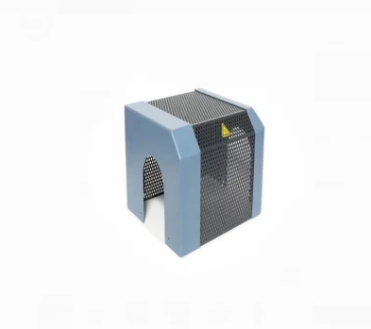- Time:2024/11/22 Posted:Dongguan Quality Innovation And Technology Co.,Ltd
Electric vehicles (EVs) have revolutionized the automotive industry, with battery technology at the heart of this transformation. A crucial component of EV batteries is their aluminum case, which ensures safety, efficiency, and longevity. Sheet metal processing plays a vital role in producing these cases, offering precise, durable, and lightweight solutions essential for modern EV manufacturing. This article delves into the selling points, user pain points, application areas, advantages, design highlights, and overall value of aluminum battery cases made with sheet metal processing.

Key Selling Points of Aluminum Battery Cases
Lightweight and Strong: Aluminum provides the perfect balance of strength and weight, enhancing vehicle performance.
Excellent Heat Dissipation: Superior thermal conductivity ensures optimal battery temperature management.
Corrosion Resistance: Aluminum’s natural resistance to corrosion increases durability in various environments.
Precision Engineering: Sheet metal processing ensures tight tolerances for a perfect fit and enhanced safety.
Customizable Designs: Advanced fabrication techniques allow for tailored cases that meet diverse EV requirements.
Addressing User Pain Points
Battery Safety: Poor-quality cases can compromise battery protection during impacts or high temperatures.
Weight Challenges: Heavy materials reduce EV efficiency and increase energy consumption.
Thermal Management Issues: Ineffective heat dissipation can lead to overheating, reducing battery lifespan.
Corrosion Concerns: Batteries in humid or harsh environments risk damage without proper material protection.
High Production Costs: Inefficient manufacturing processes increase the cost of battery production.
Applications of Aluminum Battery Cases in EV Manufacturing
Electric Passenger Vehicles: Sedans, SUVs, and compact cars rely on aluminum cases for energy efficiency and durability.
Electric Buses and Trucks: Larger EVs benefit from robust and lightweight battery enclosures for long-haul performance.
Electric Two-Wheelers: Compact battery cases support lightweight motorcycles and scooters.
Energy Storage Systems: Aluminum cases are also used in stationary battery systems for renewable energy storage.
Aerospace and Marine Applications: Emerging markets for electric aircraft and boats require advanced battery solutions.
Advantages of Aluminum Battery Cases with Sheet Metal Processing
Material Benefits
Lightweight: Reduces vehicle weight, enhancing range and energy efficiency.
High Strength-to-Weight Ratio: Ensures safety without adding unnecessary bulk.
Sustainability: Aluminum is recyclable, making it eco-friendly and cost-effective.
Thermal and Structural Performance
Efficient Cooling: Manages heat generated during battery operation and charging.
Impact Resistance: Withstands vibrations and shocks during vehicle operation.
Manufacturing Excellence
High Precision: CNC machining and laser cutting ensure consistent quality.
Cost Efficiency: Advanced automation reduces waste and production costs.
Versatile Design: Supports complex geometries and integrated features like cooling channels.
Design Highlights of Aluminum Battery Cases
Integrated Cooling Systems: Designs include built-in channels for optimal heat management.
Modular Assembly: Enables quick installation and replacement in various EV models.
Lightweight Framework: Optimized thickness without compromising durability.
Protective Coatings: Anodized or powder-coated surfaces enhance resistance to corrosion and wear.
Customization Options: Adjustable sizes and shapes fit unique battery cell configurations.
Product Value and Impact on EV Manufacturing
Enhanced Safety and Durability
Robust aluminum cases ensure battery integrity during accidents or extreme conditions, boosting consumer confidence in EVs.
Improved EV Performance
Lightweight construction contributes to better acceleration, handling, and extended driving range.
Cost and Sustainability Benefits
Sheet metal processing minimizes material waste, lowering costs and supporting sustainable practices.
Scalability for Mass Production
Advanced manufacturing techniques enable rapid scaling to meet growing EV demand.
Conclusion
Aluminum battery cases manufactured through precise sheet metal processing are indispensable in the EV industry. They address critical pain points like safety, thermal management, and weight reduction while offering unparalleled customization and scalability. As EV adoption accelerates worldwide, these innovations play a pivotal role in shaping the future of sustainable transportation. From enhanced vehicle performance to environmental benefits, aluminum battery cases deliver exceptional value for manufacturers and end users alike.
